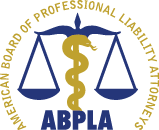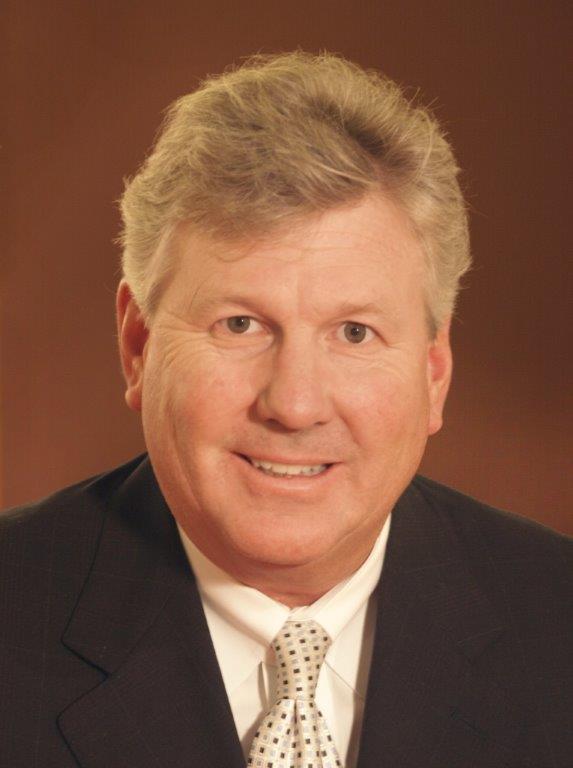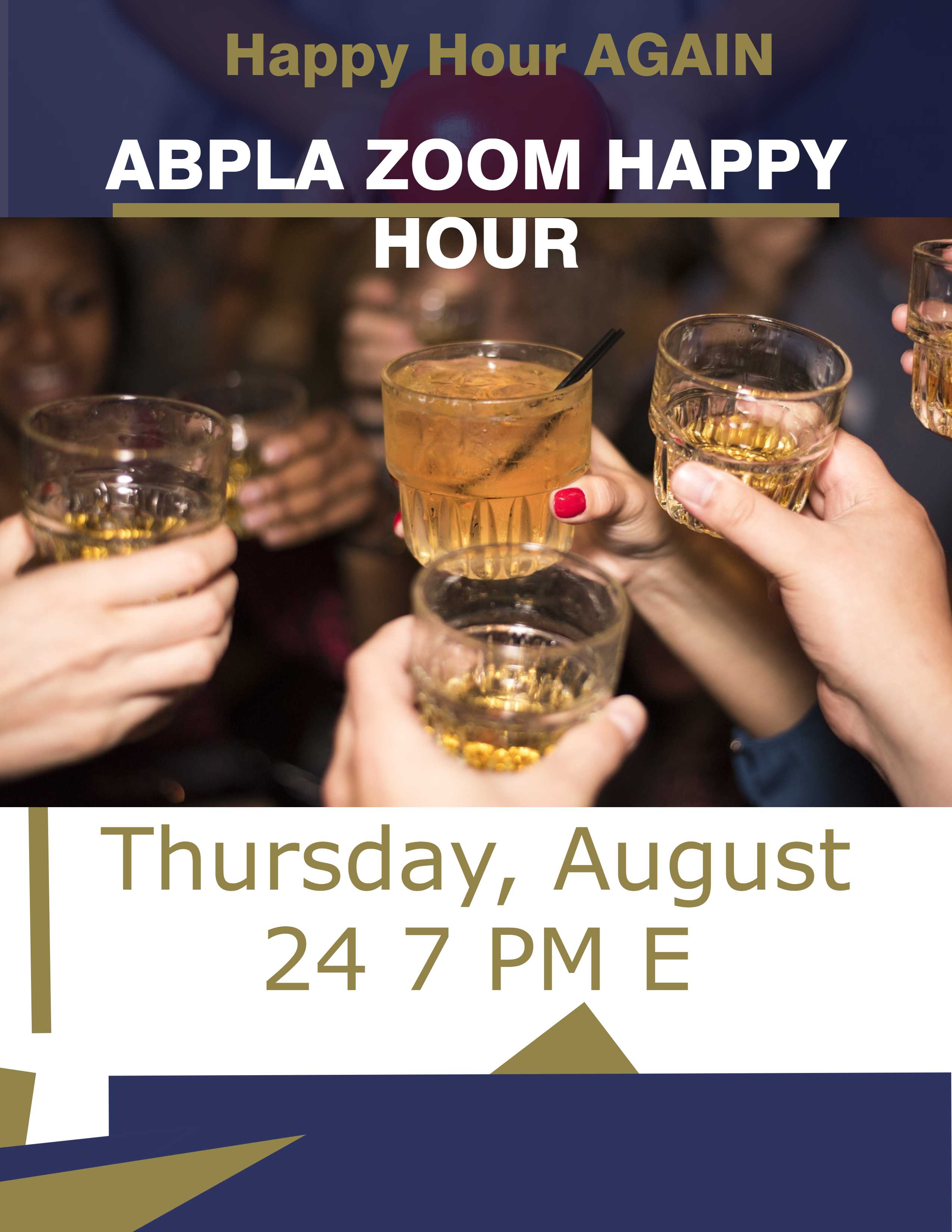|
March 13, 2019PRESIDENT’S ADDRESS: March (Part 2) This past month I enjoyed the opportunity to speak with three legal giants, two past presidents of the American Board of Professional Liability Attorneys (ABPLA), and the immediate past president of the National Board of Trial Advocates (NBTA). In this, Part 2 of my March address, I share the unique insights I gained from speaking with William F. McMurry, a past president of the ABPLA. William F. McMurry, is the founder of William F. McMurry & Associates located in Louisville, Kentucky. This year marks Bill’s 40th year of trial practice helping people across Kentucky recover compensation as a result of medical and legal malpractice, catastrophic personal injury and wrongful death. He is board certified in both medical and legal malpractice. Bill served as ABPLA president from 2010 – 2014. Q: Tell us your thoughts about board certification in general, and your service and commitment to ABPLA in particular.
A: How I feel today? I have a real sense of dread and concern over the future of all board certification groups. So much has changed in the years I have been with the ABPLA as not long after the ABA took up accreditation, they will likely depart in 2023. This should serve as a wake-up call to all certifying organizations to come together and unite under one accrediting authority.
I am prideful that during my service as President of the ABPLA we achieved accreditation by The Florida Bar, so that lawyers in Florida could, for the first time, hold themselves out as board certified “specialists” in medical malpractice and/or legal malpractice. During the same timeframe the ABPLA had to undergo re-accreditation by the ABA, which was a massive undertaking. We achieved re-accreditation for the first time during my service and I am so grateful to Tom Sartwelle for his unflinching push to make it a reality for all of us.
As time has gone by, I have also watched with interest the emergence of ideas about having an umbrella organization that could take up the role of marketing to increase awareness of board certification. Marketing is something the ABPLA and other organizations could not likely afford, but it is essential for educating consumers of legal services about the importance of board certification.
An umbrella that would educate consumers of legal services that board certification results in the consumer getting the best lawyer in a particular area of law.
However, it appears we have now come full circle with the ABA giving us some indication that they could back out. As such, I think now more than ever, we need leadership in some organization to take up the responsibility of giving credibility to organizations like ABPLA.
I will tell you that if we don't prepare and have a new accreditation authority by 2023, we are going to have real problems. If the ABA steps out, I will then be in violation of Kentucky’s rules which only permit one to say they are Board Certified if “accredited by the ABA.”
Originally, Kentucky allowed me to state my specialties as a result of Peel v. Illinois State Bar. The Peel decision was cited in the early version of the KY Code of Professional Responsibility saying in effect that you cannot say you are a specialist unless you are board certified by an organization “like” that referred to in Peel.
And so, if the ABA steps out of the business of accrediting specialization boards, I believe Kentucky will begin to look with interest at all the new “pop-up” organizations we see on the horizon, and I fear they will use the ABA’s departure as a reason to cease sanctioning the use of the word “specialist.” Now more than ever we should we give serious thought to an umbrella organization rising to the occasion before the ABA steps out of the credentialing business.
Q: What are your thoughts regarding the board certification in professional liability cases offered by ABPLA?
A: I think ABPLA is the best of the board certifying organizations. We offer a degree of specialization required to assure consumers that our attorneys will perform with excellence in the most challenging of all legal specialties.
Medical and Legal Malpractice cases are the toughest cases there are, and unless you've got a superior group that has the deep history of excellence and has the framework to put applicants through the rigors, the consumer suffers.
But, you know it's obvious that our organization is handling a specialty that is not easily undertaken by states. That's why we don't see medical malpractice board certification from many states. Some states offer legal malpractice board certification, but I don't even think they require a single jury trial, all you must do is take some depositions. At least this was the situation in California when I reviewed its regulations a few years ago.
Q: Let's talk for a moment about the qualifications for board certification by ABPLA. Given that it is becoming increasingly more difficult for younger lawyers to gain trial experience, do you think standards should be lowered in terms of trials required, or do you think that would have an adverse effect on board certification?
A: Well, you know Randy, we probably have no choice but to match our requirements with the training reality of the applicants who might want to become board certified, and who have the talent and the skill to carry on and do a good job in professional liability cases.
We know that trial experience is number one. The very foundation of a specialist is to first be a trial lawyer, which the NBTA has adequately captured in its “performances” requirement. We will always require the applicant to be a civil trial specialist before a medical or legal malpractice professional. But, I do think we have to be realistic about the extent of training which is realistic and how this degree of experience relates to a specialized level of skill and ability.
And there are other ways - I remember attending one of those demonstrative trials that ABOTA put on in Nashville one year - and I was very impressed, and believe that young lawyers watching could learn a lot by attending and the ABPLA should give credit for such attendance. There are also programs put on by various colleges requiring active participation and I think young lawyers should get credit with the ABPLA for attending those programs.
I think bench trials, as long as they are adequately complex, and perhaps other proceedings such as injunctions - you know I had an injunction hearing that went on for three months last year - could be considered for credit, but we have to have some kind of limitation on such events and how they would qualify.
Q: Do you believe that as we move forward, fewer and fewer cases are going to be tried such that in a generation or so there just aren't going to be many trials?
A: From and including 1998 through 2014, seventeen (17) legal malpractice cases were tried to verdict in Kentucky. Since 2014, no (zip, nada, none) legal malpractice cases have been tried to verdict in Kentucky.
If this is the reality, we need to understand this reality, understand where the talent can be identified, and match our requirements to the abilities of that group. Otherwise, we are all going to be dinosaurs and dead and there won't be anybody left.
However, today, I think that we do have to give some thought about giving credit for serving second chair. Maybe more than we have in the past. And the reason I say this is because you've got folks out there that want to get board certified, that see the value of board certification, and if they can get a leg up through second chairing, there are a lot of lawyers that would allow [an applicant] to come in at the last moment and second chair in an effort to allow them to learn. They wouldn't have to be part of the firm to get second chair experience.
I would be willing to allow somebody who wanted to get trial experience to second chair - I don't want to take them into my firm as an associate necessarily - but I see that opportunity as being extremely valuable. Somebody second chairing is getting a rich, quality experience, I think, because there's so much more at stake when a case gets tried today. So giving second chairs this opportunity is something that ought to be encouraged among our membership.
You know, we are seeing a large number of car wreck cases being tried in Kentucky, and it's giving those lawyers good experience. But, are those lawyers gravitating to the field of medical malpractice? The answer is “no”.
But, if those lawyers were to step out of the car wreck firms and make a lateral move to a professional liability firm, they would be well-suited to taking a case on their own after sitting through a few second chair experiences. These car wreck lawyers are getting a lot of trial experience, but they're not working in firms that do med mal or legal malpractice work.
Q: Don't you believe that there is a lot more involved in handling a professional negligence case than that of a car wreck case?
A: Sure, you might not even be required to retain experts in a car wreck case. You might put a doctor on, but that's about it. I am not downplaying the seriousness of the injuries that may be involved, but it's not as challenging as understanding neurosurgery or anesthesia, and the stuff we get confronted with literally daily. With this said, there are car wreck trials which do involve the use of engineering experts, vocational economists, neuropsychologists and often neurologists in traumatic brain injury cases. These trials require a high level of skill and the attorneys handling these complex car wreck trials should be recognized for their skills.
As long as there is medical malpractice, will always be board certification “qualified” defense lawyers. It's the plaintiff's bar that needs to be our focus of concern. We've got to do something to keep viable board certification for the plaintiff's bar in professional liability.
Q: ABPLA has ABA accreditation through 2023. At the recent ABA meeting (Winter) in Las Vegas, the subcommittee on legal specialization indicated that the ABA had no intention of leaving accreditation, but are examining all aspects of the process. Following up on your earlier response, do you still think it is in the best interests of board certification to have a contingency plan in place? A: There needs to be, and I think it should happen between now and 2023 because I strongly believe that if the ABA changes course, we must be ready with an umbrella organization.
Again, in my opinion, states like Kentucky are going to refuse to allow use of the descriptive “specialist” if the ABA actually steps down. And, I know, they are saying now . . . “don't panic, no worries, we’re in this, you've got your accreditation through 2023”. But there certainly have been indications that this is not sustainable financially for them, and I would like to see all of the legitimate organizations that add value to consumers of legal services come together and create an Academy or a College or whatever you want to call it and have everyone under the same umbrella.
Now more than ever before, we must remain relevant if this “high-level” professional liability practice will be available to consumers. And by that we've got to encourage membership. We've got to be creative and we've got to open our eyes to the reality of who is qualified. Who is truly qualified in the land where arbitration is really taking hold?
______________________
ABPLA is very fortunate to have Bill continue to serve on our board, as well as on our Oversight Committee, and our Standards Committee. Bill's work obtaining ABA accreditation for ABPLA gives him unique insight and, frankly, enabled me to hit the ground running.
While some of Bill’s message may have caused alarm, let me assure you it was not meant to be alarming. Rather, it simply reflects the work done on behalf of board certification, and therefore, ABPLA, on a day to day, month to month, year to year, basis, by all of our volunteers, board, officers, etc.
As I indicated in Part I of my March address, at the end of this month, Reeve McNamara and I will attend the ABA roundtable meeting held in Chicago Illinois. We will have considerable more information to share at that time. However, I do want you to rest easy. At the recent winter convention of the ABA in Las Vegas, Nevada, the specialization committee assured us that they had no plans of going anywhere.
Nonetheless, if board certification is important to you, let me again urge you to get involved. Come to our New York Conference in May. If you haven't been a conference attendee in the past, introduce yourself. If you have time to get involved, volunteer. If you can work on a committee, volunteer twice. If you have input on an issue raised by Tommy, Bill, myself, or anyone with ABPLA, please speak up. Together, we can protect the importance of board certification!
Randall H. Scarlett
Scarlett Law Group
536 Pacific Avenue
Barbary Coast Building
San Francisco, CA 94133
|


